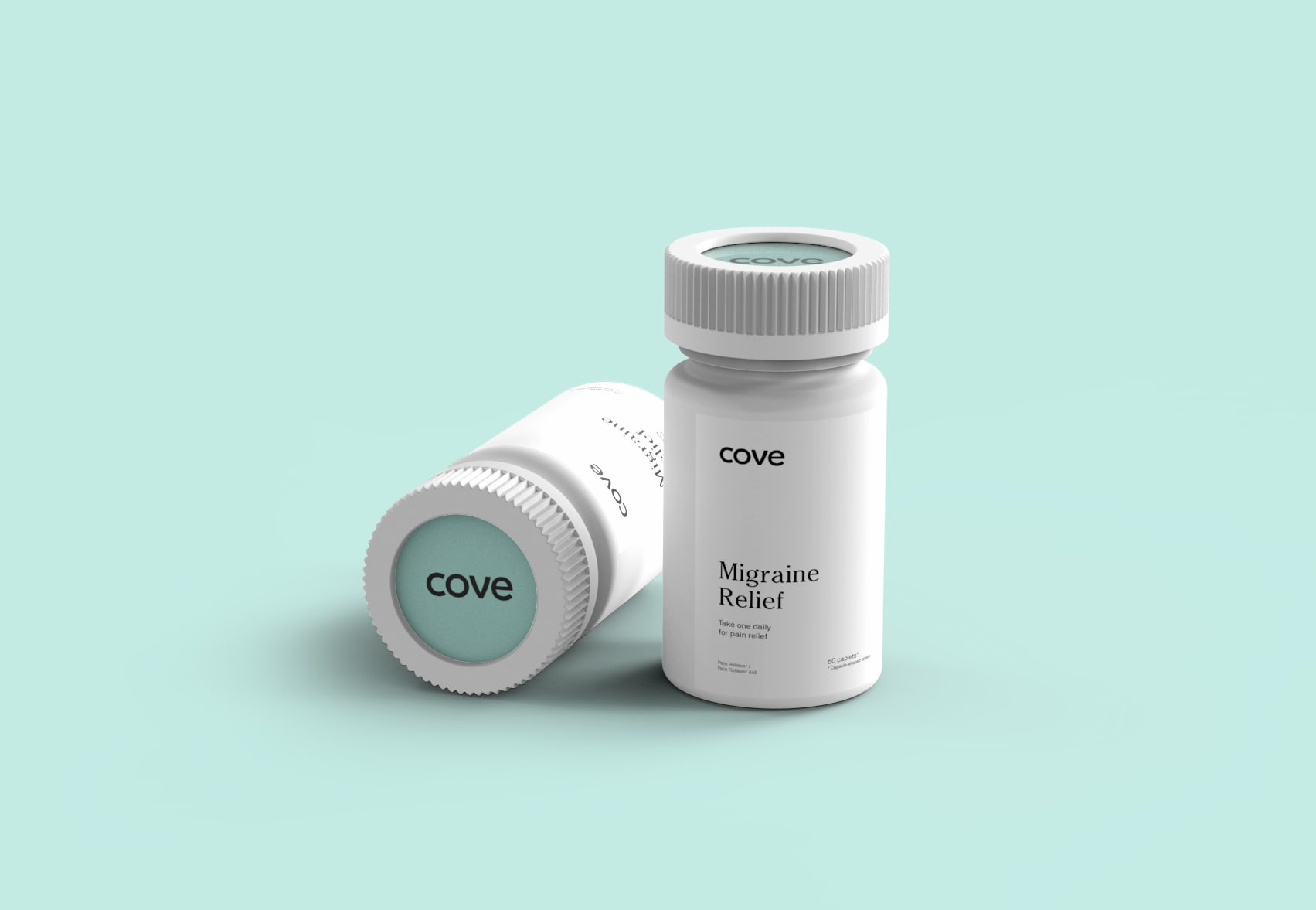What is metoclopramide?
Metoclopramide (generic Reglan®) is an anti-nausea medication that can help reduce migraine nausea, as well as nausea caused by other migraine medications you’re taking.
What will it do for me?
When you’re trying to manage the head pain that comes from a migraine attack, the last thing you want to deal with is vomiting and nausea. Metoclopramide reduce the nausea caused by your migraine (or other medications you’re taking, such as a triptan).
How does it help?
Metoclopramide blocks dopamine receptors, which can be at increased levels during migraine attacks. If you know dopamine (often called the feel-good hormone), blocking it might sound like a bad thing. But increased levels of dopamine can actually make you feel nauseous or vomit.
Where can I buy metoclopramide (generic Reglan®)?
Metoclopramide is a prescription medicine so you’ll need to talk to your medical provider first. Get started today with a Cove consultation.
How should I take it?
Metoclopramide is an oral pill that you should take at the first signs of nausea.
What should I be cautious of?
Use of metoclopramide is a typically safe prescription medication (yes, that means you’ll have to get it from a medical provider). Be sure to consult with your medical provider about any of the below:
- You’ve had a bad reaction with metoclopramide before.
- You have a history of intestinal or stomach blockages.
- You have had seizures.
- You have been diagnosed with a very rare type of tumor called pheochromocytoma.
- You have had severe muscle spasms and/or muscle twitching, lip smacking, or tongue darting from metoclopramide or similar medications.
Can I take metoclopramide with other migraine medications?
You can take it alongside other migraine medications.
What happens if I can’t take it right away?
If you can’t take metoclopramide at the onset of migraine, take it as soon as you can to offset the nausea.
Where should I keep my metoclopramide?
Keep it in a dry place at a cool room temperature.
Are there any side effects?
Possible side effects of metoclopramide are usually minimal. You might feel drowsy. You might have muscle spasming around your mouth or lip smacking, but that’s rare if you’re only using the medication occasionally.
What are other medications for migraine-related nausea?
Ondansetron (generic Zofran®) is another common prescription medication used to treat migraine-related nausea that’s available from Cove.
The information provided in this article is not a substitute for professional medical advice, diagnosis, or treatment. You should not rely upon the content provided in this article for specific medical advice. If you have any questions or concerns, please talk to your medical provider.
Metoclopramide is used to treat or prevent upset stomach and throwing up. Some people who take this drug may get a very bad muscle problem called tardive dyskinesia. This muscle problem may not go away even if this drug is stopped. Sometimes, signs may lessen or go away over time after this drug is stopped. The risk of tardive dyskinesia may be greater in people with diabetes and in older adults, especially older women. The risk is also greater the longer you take this drug or with higher doses. Muscle problems may also occur after short-term use with low doses. Call your medical provider right away if you have trouble controlling body movements or if you have muscle problems with your tongue, face, mouth, or jaw like tongue sticking out, puffing cheeks, mouth puckering, or chewing. Avoid taking this drug for more than 12 weeks. You can read more about metoclopramide’s side effects, warnings, and precautions here. If you would like to learn more about metoclopramide, please see the full prescription information here. You are encouraged to report negative side effects of prescription drugs to the FDA. Visit MedWatch: https://www.fda.gov/Safety/MedWatch/default.htm or call 1-800-FDA-1088.
If you’re experiencing a mental health crisis, please call 911 or go to your nearest emergency department. If you are contemplating suicide, call 911 or call/text the National Suicide and Crisis Lifeline at 988. These services are available 24/7.


